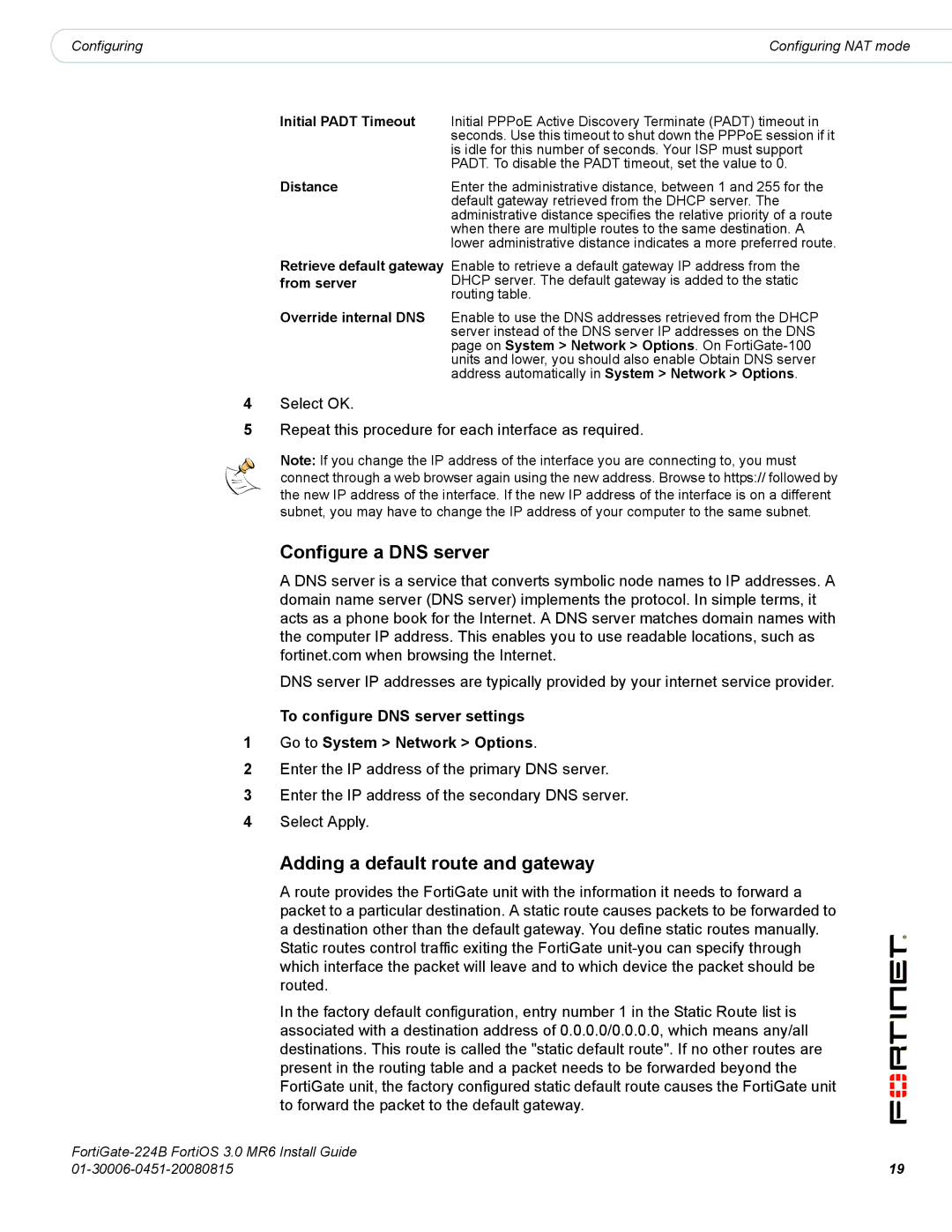
|
|
|
Configuring | Configuring NAT mode |
Initial PADT Timeout | Initial PPPoE Active Discovery Terminate (PADT) timeout in |
| seconds. Use this timeout to shut down the PPPoE session if it |
| is idle for this number of seconds. Your ISP must support |
| PADT. To disable the PADT timeout, set the value to 0. |
Distance | Enter the administrative distance, between 1 and 255 for the |
| default gateway retrieved from the DHCP server. The |
| administrative distance specifies the relative priority of a route |
| when there are multiple routes to the same destination. A |
| lower administrative distance indicates a more preferred route. |
Retrieve default gateway from server
Override internal DNS
Enable to retrieve a default gateway IP address from the DHCP server. The default gateway is added to the static routing table.
Enable to use the DNS addresses retrieved from the DHCP server instead of the DNS server IP addresses on the DNS page on System > Network > Options. On
4Select OK.
5Repeat this procedure for each interface as required.
Note: If you change the IP address of the interface you are connecting to, you must connect through a web browser again using the new address. Browse to https:// followed by the new IP address of the interface. If the new IP address of the interface is on a different subnet, you may have to change the IP address of your computer to the same subnet.
Configure a DNS server
A DNS server is a service that converts symbolic node names to IP addresses. A domain name server (DNS server) implements the protocol. In simple terms, it acts as a phone book for the Internet. A DNS server matches domain names with the computer IP address. This enables you to use readable locations, such as fortinet.com when browsing the Internet.
DNS server IP addresses are typically provided by your internet service provider.
To configure DNS server settings
1Go to System > Network > Options.
2Enter the IP address of the primary DNS server.
3Enter the IP address of the secondary DNS server.
4Select Apply.
Adding a default route and gateway
A route provides the FortiGate unit with the information it needs to forward a packet to a particular destination. A static route causes packets to be forwarded to a destination other than the default gateway. You define static routes manually. Static routes control traffic exiting the FortiGate
In the factory default configuration, entry number 1 in the Static Route list is associated with a destination address of 0.0.0.0/0.0.0.0, which means any/all destinations. This route is called the "static default route". If no other routes are present in the routing table and a packet needs to be forwarded beyond the FortiGate unit, the factory configured static default route causes the FortiGate unit to forward the packet to the default gateway.
| |
19 |
